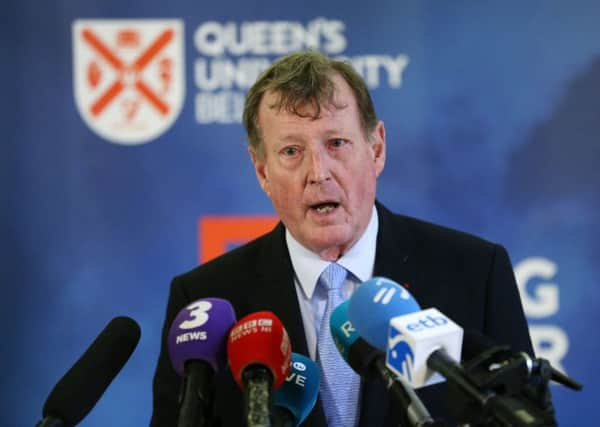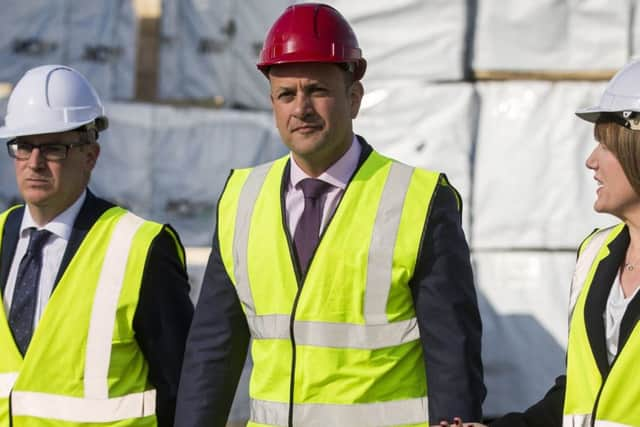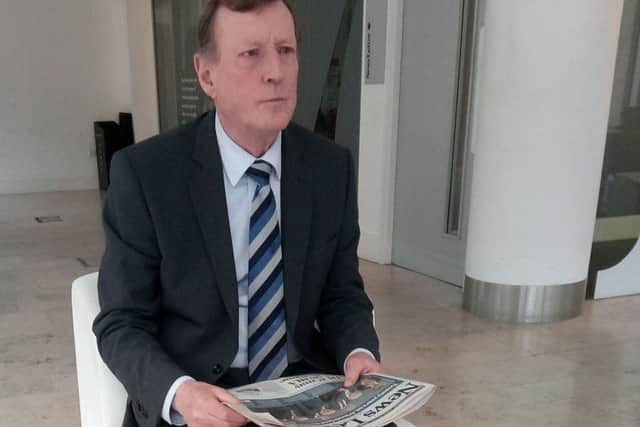Trimble: There may be scope to learn from Scottish experience on Gaelic


The former Ulster Unionist Party leader was speaking to the News Letter about the current political climate in the aftermath of the 20th anniversary of the Belfast Agreement (see link to first part of interview below).
With regard to the stalemate over an Irish language act, Lord Trimble said that it was his understanding that the St Andrew’s deal from 2006 has “a paragraph in which it says that the British government will bring forward proposals on language”, bearing in mind the language experience elsewhere, including the Republic of Ireland.
Advertisement
Hide AdAdvertisement
Hide Ad“Anybody who has looked at the situation with any degree of a balanced approach, and indeed most people in southern Ireland themselves, will concede that the experience in southern Ireland is disastrous,” Lord (formerly David) Trimble said.


The forced promotion of the language was unpopular in the Republic, the one-time first minister of Northern Ireland said, and “it has not done any good with regard to the language”.
“It has been a situation there where the language is used as a weapon by certain groups, who tend to be in favour of the language but are in fact pursuing another agenda.”
Looking across the North Channel to the language precedent in Scotland, Lord Trimble said: “There are areas in Scotland where there is a very substantial Gaelic speaking population. There are a lot more genuine Gaelic speakers in Scotland than there are in the Republic of Ireland, so there may be something worthwhile coming from the Scottish experience.”
Advertisement
Hide AdAdvertisement
Hide AdIn North Wales, he added, there is “an extensive number of [Welsh] speakers”.


“To say we’re just going to have nothing [in Northern Ireland] is, I think not really sensible in a situation where we have the provisions for language in Scotland and Wales.”
Does that mean he thinks that an Irish language act is almost inevitable?
“Well, I think even the phrase Irish language act has become toxic. I think we maybe need to look at the vehicle and how it’s presented as well.”
Advertisement
Hide AdAdvertisement
Hide AdHe said that while republicans deny that some people want to use the language as a wedge, “it’s fair enough to say to them: look, we would be a lot more comfortable and people on the ground would be a lot more comfortable to vote for this if you treated us in a civilised manner and got away from this weaponised action with regard to it.


“If there is a way to create a better atmosphere within which to do these things, well then, there we are.”
Meanwhile, Lord Trimble said there is nothing in the 1998 Belfast Agreement that prevents the British government “from being a strong supporter of the Union”.
Asked his view on the apparent obligation on London to be neutral in Northern Ireland, sometimes cited by nationalist critics of the UK government, he says there is a clause in the Belfast Agreement that the government “has to be, as the sovereign power, impartial and this is cited increasingly by republicans and so on”.
Advertisement
Hide AdAdvertisement
Hide AdBut he adds: “That does not in any way prevent the British government from being a strong supporter of the Union.”


Why not?
“Because the agreement recognises the existence of British sovereignty and the legitimacy of it and there are no limitations on Britain’s sovereignty and no things which draw back from that.
“The government, direct rule administrators here, would say it is their duty to uphold the Union, but in their dealings with the various political parties, they have an obligation to treat them fairly, and that’s where that comes from and it’s no more than that.”
Asked if he considers the Irish government to be partisan on behalf of nationalist political priorities, given its rhetoric on matters such as Brexit, a Pat Finucane inquiry, and an Irish language act, he replies: “Yes, they are. This is most regrettable.
Advertisement
Hide AdAdvertisement
Hide Ad“They’re both people, both the Taoiseach [Leo Varadkar] and the Tánaiste [Simon Coveney] are people who were not in the [1998] agreement.
“I have doubts as to how much they actually know about the process that led to it and they’re acting in a way which isn’t helping and if anything, is going to undermine.
“They have an obligation to treat parties fairly as well, and that applies to Northern Ireland issues in so far as they have influence in regard to them, so I think that that should be turned around on them.
“I’ve been using the phrase that there are people in Dublin going around ‘doing silly things’.”